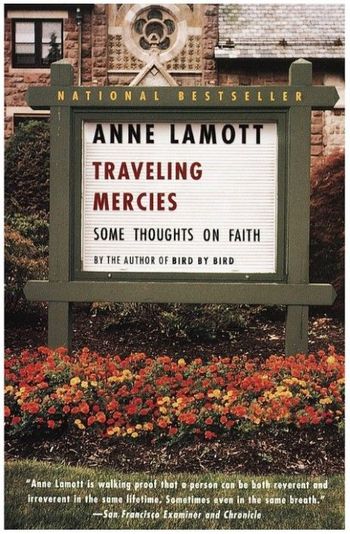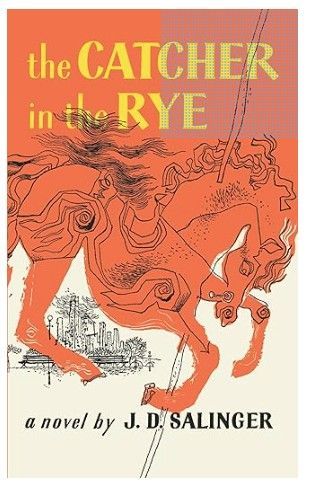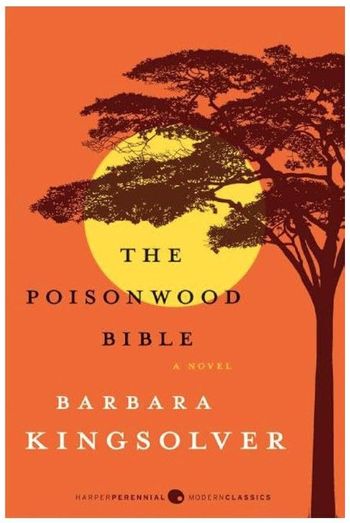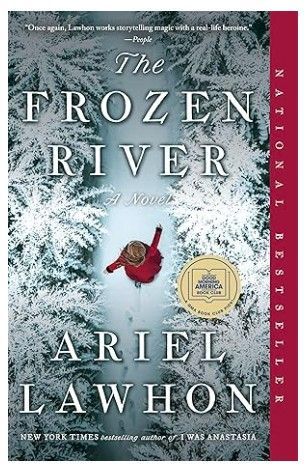First Presbyterian Church 1793
Book Club

The dates for the Book Club meetings are chosen by the participants.
Contact the church office to be placed on the email list.
Polls are sent out to schedule the date and time for each month's discussion.
Book Club
January - April 2026
Used copies of each book are available in the church office
January 2026
Date to be Announced
Marsha Nolf's Home

Traveling Mercies: Some Thoughts on Faith
By
Anne Lamott
From the acclaimed author of Bird by Bird comes a personal, wise, very funny, and “life-affirming” book (People) that shows us how to find meaning and hope through shining the light of faith on the darkest part of ordinary life.
"Anne Lamott is walking proof that a person can be both reverent and irreverent in the same lifetime. Sometimes even in the same breath." —San Francisco Chronicle
Lamott claims the two best prayers she knows are: "Help me, help me, help me" and "Thank you, thank you, thank you." She has a friend whose morning prayer each day is "Whatever," and whose evening prayer is "Oh, well." Anne thinks of Jesus as "Casper the friendly savior" and describes God as "one crafty mother."
Despite—or because of—her irreverence, faith is a natural subject for Anne Lamott. Since Operating Instructions and Bird by Bird, her fans have been waiting for her to write the book that explained how she came to the big-hearted, grateful, generous faith that she so often alluded to in her two earlier nonfiction books. The people in Anne Lamott's real life are like beloved characters in a favorite series for her readers—her friend Pammy, her son, Sam, and the many funny and wise folks who attend her church are all familiar. And Traveling Mercies is a welcome return to those lives, as well as an introduction to new companions Lamott treats with the same candor, insight, and tenderness.
Lamott's faith isn't about easy answers, which is part of what endears her to believers as well as nonbelievers. Against all odds, she came to believe in God and then, even more miraculously, in herself. As she puts it, "My coming to faith did not start with a leap but rather a series of staggers."
February 2026
Date to be Announced
Marsha Nolf's Home

Catcher in the Rye
By
JD Salinger
The Catcher in the Rye, by J.D. Salinger, is a classic 1951 coming-of-age novel narrated by the cynical and alienated 16-year-old Holden Caulfield, who recounts his experiences over a few days after being expelled from prep school, railing against the "phoniness" of the adult world while struggling with themes of innocence, identity, and loss. The book is famous for its distinctive voice, its critique of societal superficiality, and its frequent challenges due to profanity and mature themes, making Holden an iconic figure of teenage rebellion.
March 2026
Date to be Announced
Marsha Nolf's Home

The Poisonwood Bible
By
Barbara Kingsolver
The story is told by the wife and four daughters of Nathan Price, a fierce, evangelical Baptist who takes his family and mission to the Belgian Congo in 1959. They carry with them everything they believe they will need from home, but soon find that all of it--from garden seeds to Scripture--is calamitously transformed on African soil.
The novel is set against one of the most dramatic political chronicles of the twentieth century: the Congo's fight for independence from Belgium, the murder of its first elected prime minister, the CIA coup to install his replacement, and the insidious progress of a world economic order that robs the fledgling African nation of its autonomy. Against this backdrop, Orleanna Price reconstructs the story of her evangelist husband's part in the Western assault on Africa, a tale indelibly darkened by her own losses and unanswerable questions about her own culpability. Also narrating the story, by turns, are her four daughters--the teenaged Rachel; adolescent twins Leah and Adah; and Ruth May, a prescient five-year-old. These sharply observant girls, who arrive in the Congo with racial preconceptions forged in 1950s Georgia, will be marked in surprisingly different ways by their father's intractable mission, and by Africa itself. Ultimately each must strike her own separate path to salvation. Their passionately intertwined stories become a compelling exploration of moral risk and personal responsibility.
April 2026
Date to be Announced
Marsha Nolf's Home

The Frozen River
By
Ariel Lawhon
Maine, 1789: When the Kennebec River freezes, entombing a man in the ice, Martha Ballard is summoned to examine the body and determine cause of death. As a midwife and healer, she is privy to much of what goes on behind closed doors in Hallowell. Her diary is a record of every birth and death, crime and debacle that unfolds in the close-knit community. Months earlier, Martha documented the details of an alleged rape committed by two of the town’s most respected gentlemen—one of whom has now been found dead in the ice. But when a local physician undermines her conclusion, declaring the death to be an accident, Martha is forced to investigate the shocking murder on her own.
Over the course of one winter, as the trial nears, and whispers and prejudices mount, Martha doggedly pursues the truth. Her diary soon lands at the center of the scandal, implicating those she loves, and compelling Martha to decide where her own loyalties lie.
Clever, layered, and subversive, Ariel Lawhon’s newest offering introduces an unsung heroine who refused to accept anything less than justice at a time when women were considered best seen and not heard. The Frozen River is a thrilling, tense, and tender story about a remarkable woman who left an unparalleled legacy yet remains nearly forgotten to this day.
